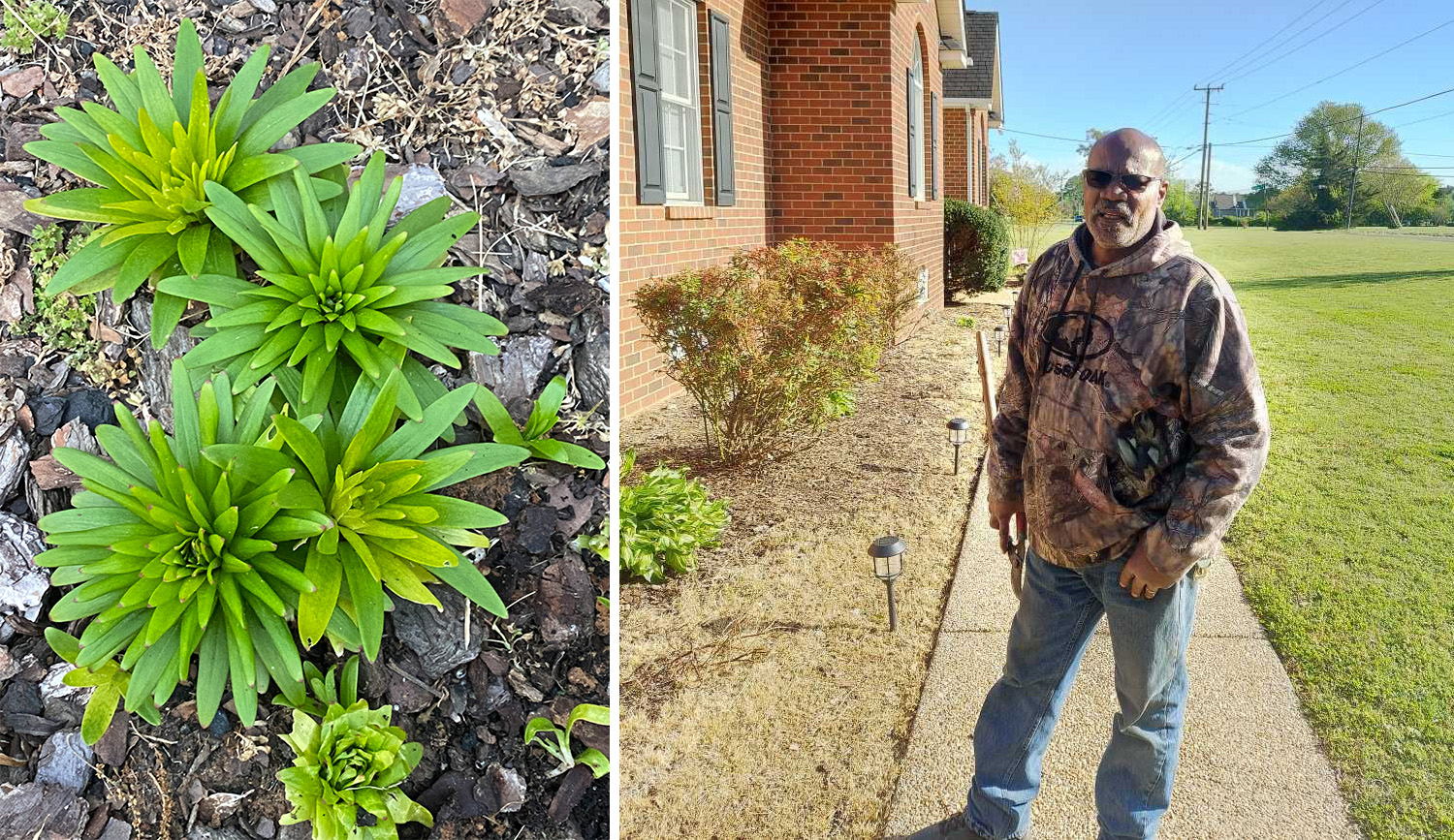
At the age of 18, Marvin Anderson was sentenced to more than two centuries in prison for crimes he didn’t commit. For 15 years, he was locked behind bars, and robbed of one of life’s simplest joys: nature.
Having grown up on a farm in Virginia, Mr. Anderson said he developed his love of gardening and cultivating plants early on. From the age of 6, he helped his family plant and harvest, later operating the tractor, too. After being released on parole in 1997 and subsequently exonerated in 2002, his passion for plants was reignited and today, he takes great pride in his thriving garden.
“When I get home from work I like to come out here and pull grass, cut back the yard, and it helps me to relax, and I just really enjoy watching the garden grow,” Mr. Anderson said. “A lot of people think gardening is really hard work and very complicated, but I find it very relaxing, and it’s easier than you think.”
Mr. Anderson, who serves on the Innocence Project’s board of directors, said that while he loves watching his rose bushes and hostas bloom, he particularly loves the edible plants in his garden. He typically grows cherry tomatoes, cucumbers, eggplants, and basil. Last summer, every one of his salads featured home-grown cherry tomatoes after a particular bountiful harvest.
“I basically like to grow the things I like to eat — that’s really rewarding,” he said.
To gardeners who are just starting out, Mr. Anderson suggested growing tomatoes, which he said are surprisingly easy to grow, especially if you purchase a seedling or young plant rather than growing from seed. And offered a few more suggestions for budding plant enthusiasts.
Mr. Anderson’s tips for beginner gardeners:
- Don’t overwater! Overwatering is especially easy to do with houseplants, so a planter with drainage that lets excess water run through is best.
- Make sure your plants get sufficient sunlight. If you think your plant isn’t getting enough natural light, get a grow light.
- Use straw. Mr. Anderson said the secret to his flourishing garden is putting down a layer of straw over the soil. Over time, the straw decomposes and adds nutrients to the soil beneath it.
- Try mushroom compost. Mushroom compost helps add nutrients to the soil and retain water.
- Grow old potatoes. If you’ve got a forgotten potato that has started sprouting, you can either put it in water, or just put it back into the ground, where it will quickly start growing.